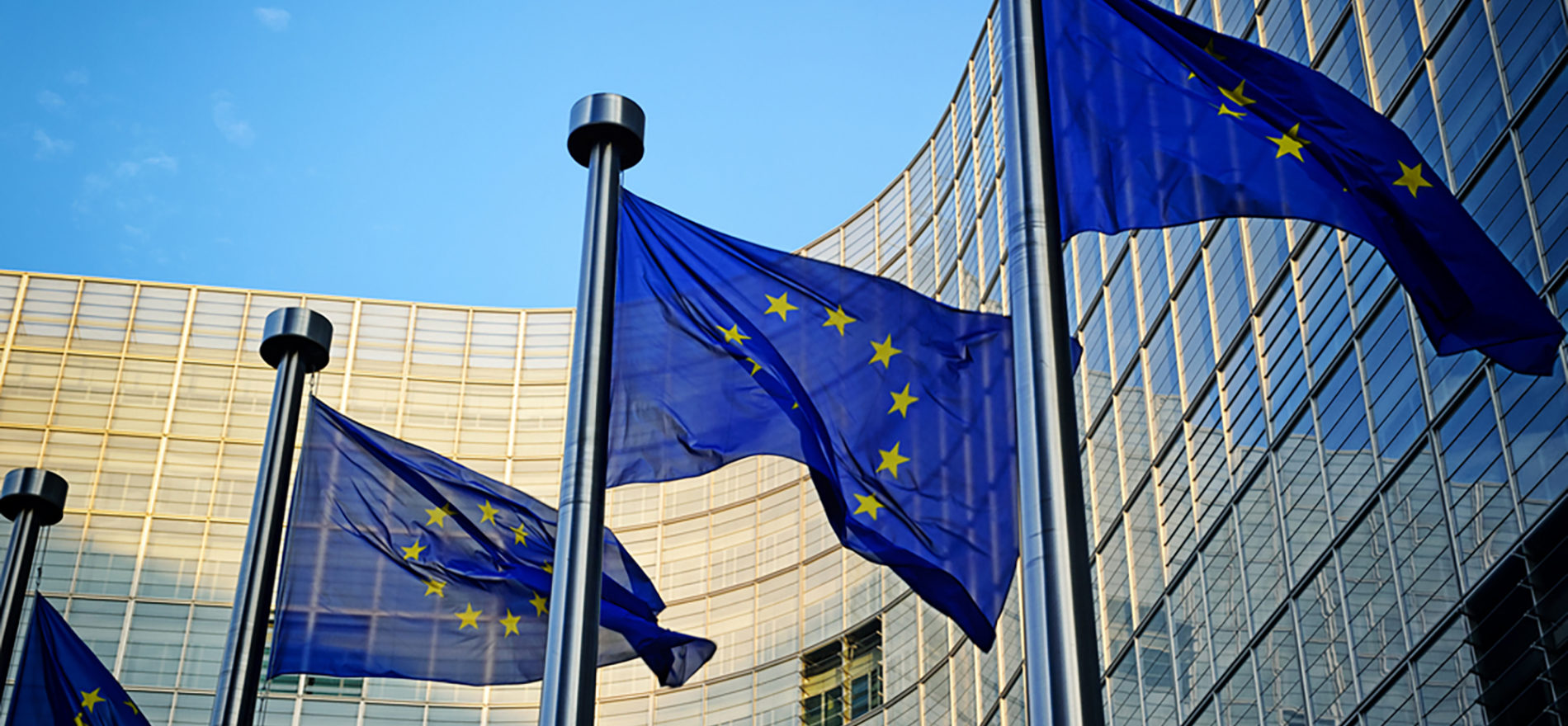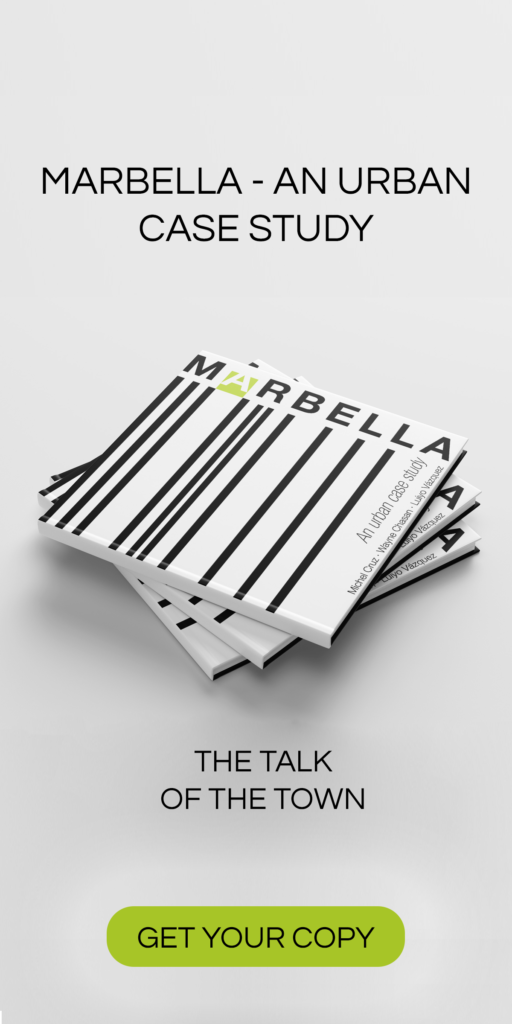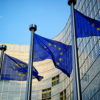The European Union and its precursor, the European Common Market, are initiatives that promised a new direction for the world – one of cooperation, trade and integration into a community of neighbouring states with shared goals and values.
Such a collective can only work where this sufficient cultural affinity and also political maturity, which is probably why it still hasn’t really taken off in other parts of the world. Sadly, the project is much beleaguered in Europe too, but mostly because it has strayed from its original course.
For the EU
The EU has undoubtedly contributed to several decades of peace, prosperity and stability in Europe, albeit many of them during the balance of power game that was the Cold War. For many years it was a shining example to the world, and in my view had its best years as the Common Market.
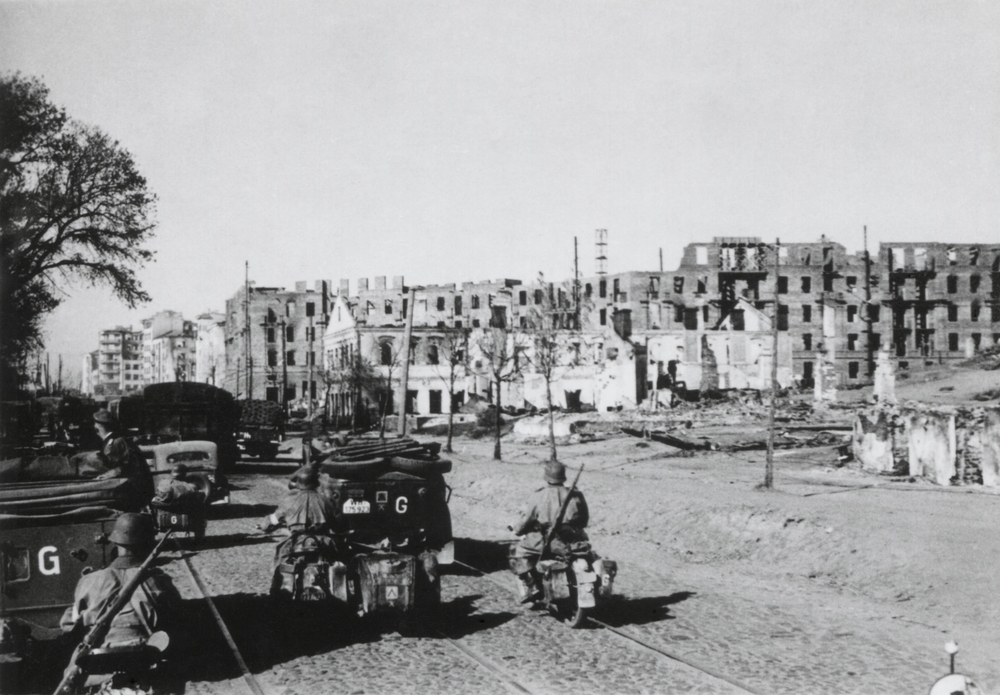
The EU has done well to avoid a repetition of war in Europe
The EU also pools and projects European power within an increasingly diverse, assertive and multi-polar world, and thanks to this it has the means to negotiate global trade deals, though the lack of political will to defend itself properly is at the heart of its weakness.
Against the EU
I believe the union that was built upon the success of the Common Market became too big and ambitious for its own good, and also expanded too fast and greedily. At one point it seemed like anyone could join, and like the Eurovision Song Festival they didn’t even have to be European.
The cracks became clearly visible after the seismic movements caused by the Financial Crisis, and instead of adapting to new conditions and a growing tide of discontent, the Eurocrats – an even more wasteful version of domestic career politicians – pursue their agenda unperturbed.

But it hasn’t been able to stop Third World conflicts spreading into Europe
While the claims of Brexiteers are mostly ludicrous, the EU is indeed too big, cumbersome, wasteful and expensive, with costly components such as the European Parliament that appear to have no real raison d’être. Moreover, the loss of national autonomy is keenly felt across Europe.
Today’s EU is a reflection of Merkel’s Germany – a country that is liberal enough to invite two million Syrians into its lands without so much as a public referendum, yet not liberal enough to let other nations make such decisions for themselves.
One wonders what such leaders have in store for our beleaguered continent; what big plan they have for us, and Covid heightens our misgivings all the more. As we are held under ‘house arrest’ by politician and policeman alike, immigrants continue to arrive unabated.
Beleaguered for good reason
The European Union is therefore increasingly unpopular, and while its concept is still valid and validated, the execution is called into question more and more. It is therefore not the union itself, but the direction it is taking that is creating an outward-pulling centrifugal force on its membership.
And how could it be otherwise with a bureaucratic behemoth that exercises political dominion over Europe without having the military means and political strength of conviction to defend itself and its own interests. In many ways, Europe has not evolved from the Marshall Plan days. For one thing, it continues to depend upon the US for its defence and as a result remains a dependency.
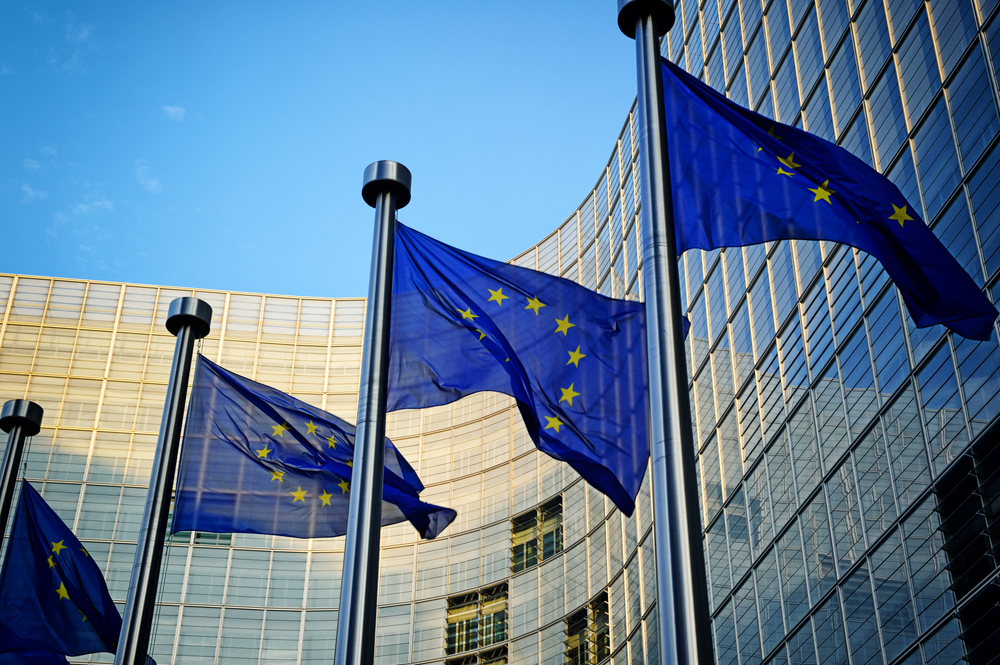
The EU has become the victim of its own ambition
A new beginning
I believe in the concept of the European Union, but not in its current form. The common currency and central bank could have worked but for the fact that there is too much cultural and economic divergence within Europe. What is good policy for Germany tends to hurt Spain and Greece.
And therefore I would break up the EU and rebuild it anew, creating a series of concentric alliances based upon geographical, cultural and economic affinity that each serve as the building blocs of a new, more flexible and less centrally oppressive European Union:
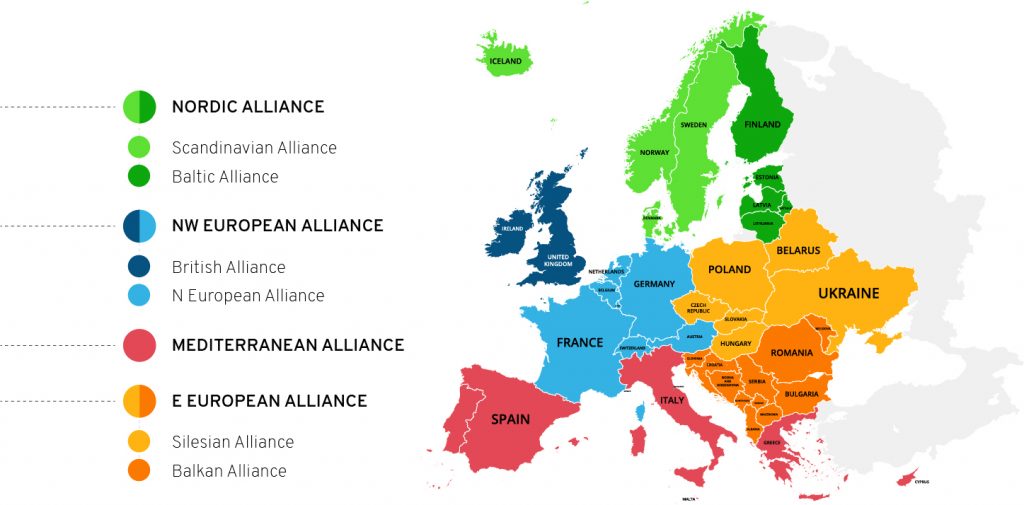
Scandinavian Alliance
Close economic, cultural, political and military cooperation between Norway, Sweden, Denmark and Iceland, including freedom of movement and factors of production.
Baltic Alliance
The same between Finland, Estonia, Latvia and Lithuania.
Nordic Alliance
The affinity between these two blocs is such that they could together form an almost equally tight second alliance that would constitute one of the main building blocs of the new EU.
British Alliance
Great Britain and Ireland would form another culturally and geographically close alliance within the overall framework of the EU.
Northern European Alliance
The Benelux, Germany, Austria, Switzerland and France would make up this alliance, which would in many ways form the core element of the EU.
North-West European Alliance
The British and Northern European alliances come together to form the NW European Alliance, which together with the Nordic Alliance is on a sufficiently compatible level to potentially share a common currency, if this would be universally desired.
Mediterranean Alliance
The economic, regional and cultural affinity between Spain, Portugal, Italy, Malta, Greece and Cyprus – along with their shared defence requirements – make this another sensible and compatible alliance that, while being a building bloc of the EU, would have the economic and monetary freedom to pursue those policies that could benefit its economies without being a drain on Northern European coffers. In other words, it gives them a chance to fend for themselves and play to their strengths, which while not being many should include the ability to compete on lower price levels and not suffer the artificial inflation caused by the Euro.
Silesian Alliance
This bloc would consist of Poland, Czechia, Slovakia and Hungary; countries that may in the future join the level of the northern Tier one region.
Balkan Alliance
More on a par with the Mediterranean countries, the Balkan countries include Romania, Bulgaria, Albania, Moldavia, the Ukraine and the constellation of former Yugoslav states, though an exception would probably have to be made for Slovenia, which could become an extra territorial part of the Silesian Alliance. Byelorussia represents a problem, as like the Ukraine it is geographically and culturally more akin to the Silesian countries, and would benefit from inclusion into a European alliance, but economically and politically is closer to the Balkan region.
Eastern European Alliance
Countries such as Byelorussia could therefore become direct members of the Eastern European Alliance, which would bind the former Warsaw Pact countries on Europe’s eastern flank together and form the final building bloc in the Lego puzzle.
Building blocs
This process could be repeated across the world, from the Near East and Middle East to Central and South Asia, South East Asia, the Far East, Australasia, Oceania, North Africa, West Africa, Central Africa, Southern Africa, North America, Central America, South America and the Caribbean – where concentric blocs would come together to create regional unions that, like the EU, would foster peace, cooperation and economic inter-reliance.
Some countries are too big for their own good, so I would see Russia becoming an associated member of the EU and the Asian Union, just as Turkey would be a member of the Middle Eastern Alliance but also a country ideally suited to becoming an entrepot between East and West. As for China, I see no other solution than to divide it into smaller, more manageable parts such as Sinkiang-Uighur, Tibet, Manchuria, Northern China and Cathay, which would include Taiwan, HK and Macau in territory as well as spirit. This for the sake of mankind – Chinese and otherwise.
Mutual defence
The same structure would then be repeated around the world, culminating in a global club in the form of a similarly reconstituted and sanitised United Nations. Always focusing on mutual cooperation and a depoliticised, humanistic approach towards brotherly interaction, each region would, however, become a largely self-sufficient bloc that would create a common market where there would be greater interaction on a financial, manufacturing, trade and cultural level.

Dependence upon US military protection makes Europe a dependency
Put differently, European people would largely consume products produced by European workers, as would be the case in Asia, Africa and the Americas, and in this way there would be a more natural connection between salaries, prices and jobs within specific markets. I believe in the principle of ‘sensible trade’, based upon the concept of uniqueness, where products unique to a certain country or region for cultural or geographical/climatic reasons make it illogical to produce them somewhere else. In such a case, the exchange of goods across the world makes sense, and wasteful haulage would be greatly reduced.
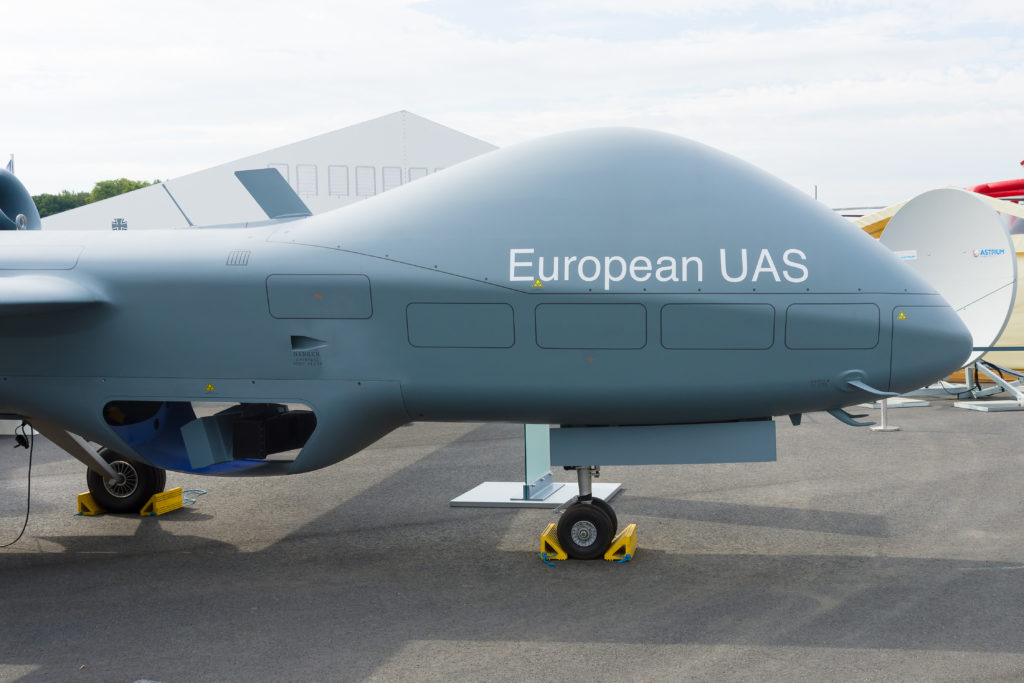
Europe needs the ability and will to defend itself and its values
This applies to products with a localised character, such as Champagne or traditional Chinese furniture, or the production of tropical foodstuffs within tropical climates that do not require the addition of artificial inputs such as gas-heating and glasshouses. In other words, to become exportable, a product or service would have to transcend the generic and become a commodity unique to a certain country or region. What clearly doesn’t qualify is importing apples or wine from New Zealand into Europe, when their natural market should be the more proximate tropical countries of Asia. In Europe, we should consume European apples and wine, and more than that, attempt to source our food as locally, fresh, natural and ethically produced as possible. This ties in with the health-conscious, environmental and kilometre zero concepts, and makes sense across the board.
Seen from a different perspective, local/national/regional markets should favour local/national/regional products and services for all but those that are uniquely exportable, in the same way that countries should wipe their own noses when it comes to labour requirements and looking after their own poor and delinquents before searching further afield. I believe such a system would certainly be more balanced and sustainable than the current chaos of criss-crossing global trade agreements, globalised winner-takes-all economies of scale and wasting of natural resources and the environment. Moreover, it would return vitality to countries that have now been degraded to the status of sleeper nations without own purpose, value or future.

A locally based world can also be global in spirit

